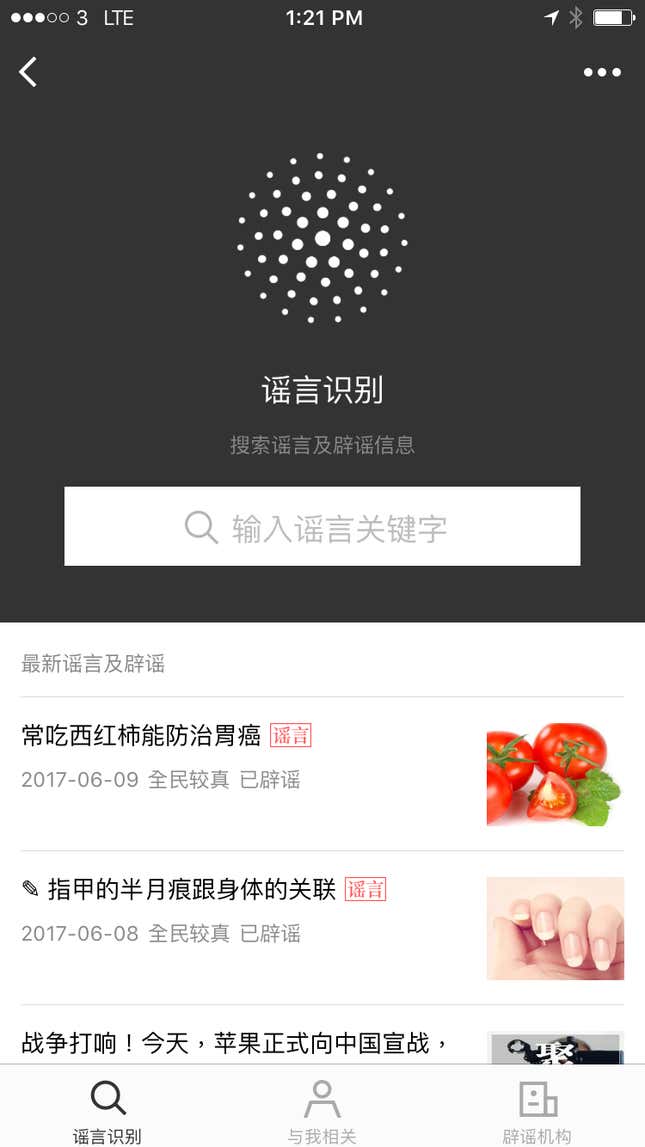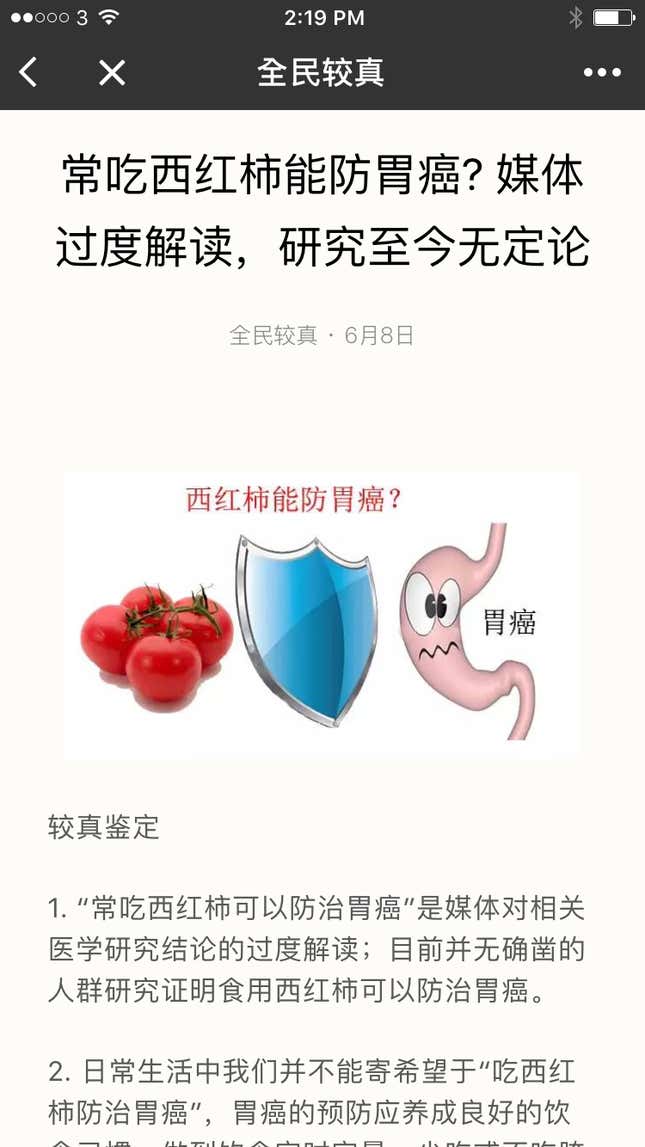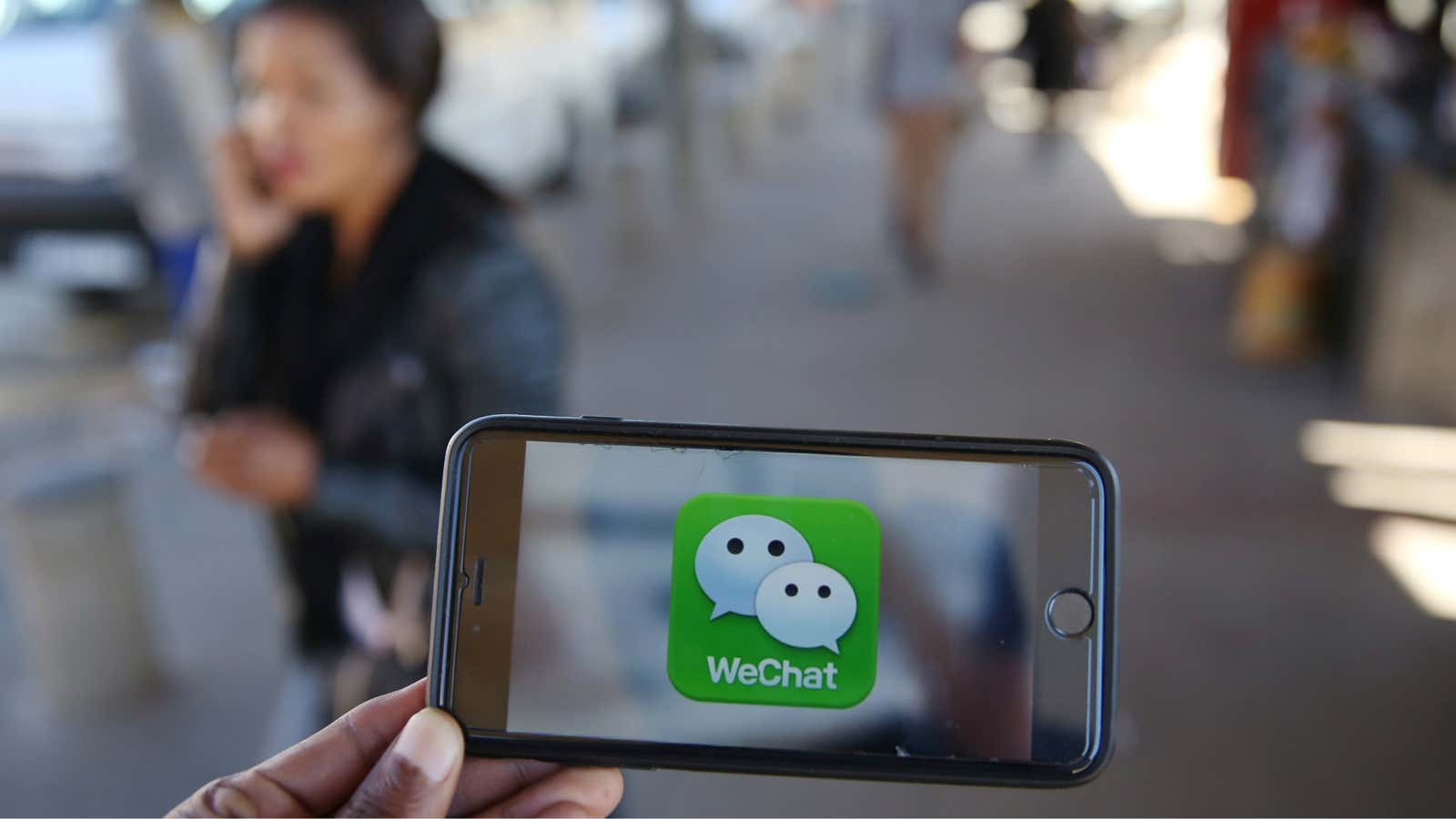Today Chinese internet giant Tencent launched a new feature (link in Chinese) for its WeChat app designed to collect and debunk online rumors, which remain just as common in China as they are in other parts of the world.
The feature is one of many new mini programs that function as “apps within an app,” keeping users inside WeChat even as they perform tasks they might otherwise do elsewhere. Opening the mini program shows a main page where users can search for possible rumors, and scan from a list of articles that debunk recent fake news items.

At present, the top-listed piece debunks an article that claims eating tomatoes can prevent stomach cancer. That one was written by Jiaozhen—a Snopes-esque media outlet in China—but other third-party organizations can also submit such work.

The program also turns rumor reading into a social game of sorts. It gives users a ranking based on how many debunked rumors they’ve read, and lets them share faves with friends. And if a user shared a piece of news with friends that was later debunked, the program sends a notification informing them the article is false.
This isn’t the first time WeChat has taken efforts to combat online rumors. Last year it launched an “official account” (roughly equivalent to a Facebook page) titled Rumor Filter that published articles debunking recent rumors on a near-daily basis. The mini program takes this concept and makes it more interactive, as well as more comprehensive.
WeChat’s recent efforts mirror those of Facebook, which promised to fight fake news after seeing how easily false information spread on the platform during the 2016 US presidential campaigns.
False information is indeed pervasive on China’s internet, particularly when it comes to food. Thanks to incidents like the tainted milk scandal in 2008, there is a widespread fear of dangerous foods and distrust of safety regulators. Fake news plays to such anxieties. According to a report co-authored by WeChat last year, over 15% of the rumors (link in Chinese) that were widely read and reported on the app were related to food.
Of course, fake news is a bit more complicated in China, where authorities can portray political dissent as spreading dangerous rumors. In 2013 Beijing appointed a new internet czar. He began his term by jailing social media figures who had spoken out against the government, justifying it by saying they had spread rumors. In 2015, authorities jailed 200 people on similar grounds (link in Chinese). Some had spread rumors about an industrial explosion in Tianjin that killed hundreds, others ones about China’s stock market, which was then undergoing extreme volatility.
This conflation of fake news and political dissent shows up in the new mini program. In addition to media organizations focused on health and science, many of the sources listed as contributors to the rumor-debunking include state media outlets and municipal security bureaus. Some of the articles listed in the app address alleged abuses of power by local officials. It’s difficult to know if these “debunkings” can be trusted, or if they’re lies themselves.
Moreover, for all its technical innovations, WeChat can hardly be considered a platform for free speech. Conversations are regularly censored using keyword filtering, particularly in group chatrooms. But users don’t have a choice—the definition of a “rumor” is up to Beijing, and users looking to see fake news debunked will, at times, have to see real news debunked as well.
Read more: In China, consumers have to be on guard not just against fake food, but also fake news about food




